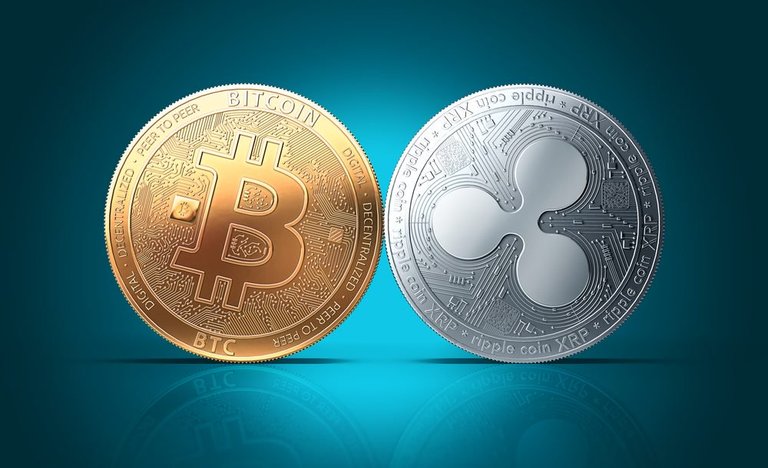
What is Ripple? In short: It's more than just it's native cryptocurrency called XRP. It's a system for real-time gross settlements, a currency exchange and a remittance network. Ripple is actually older than Bitcoin: The project started in 2004 (!), the Ripple Network was released in 2012 with the goal to enable "secure, instantly and nearly free global financial transactions of any size with no chargebacks."
The`re are some key facts hat make Ripple unique and unlike any other crypto around:
- Most important: Ripple is both, a decentralized transaction network and acentralized cryptocurrency (XRP). The Ripple Network supports all kinds of tokens representing fiat currency, cryptocurrency, commodity or any other unit of value such as frequent flier miles or mobile minutes.
- Ripple is not a real competitor to Bitcoin. It's core idea is to offer cryptocurrencies and other tokens more ways to link with those that use other forms of currency. It's basically a secure and fast system for confirming transactions.
- This system is already used by companies like UniCredit, UBS and Santander. It has been increasingly adopted by banks and payment networks as settlement infrastructure technology, with American Banker explaining that "from banks' perspective, distributed ledgers like the Ripple system have a number of advantages over cryptocurrencies like bitcoin," including price and security.
- Unlike Bitcoin it's a digital currency system in which transactions are verified by consensus among members of the network, rather than by a mining process.
- Because Ripple doesn't use a Proof of Work (PoW) mining process transactions can be handled much faster and energy costs to sustain the network are much lower. In fact, Ripple transactions take just around 4 seconds to authorize. The network can handle around 1000 transactions per second, Bitcoin is restricted to a sustained rate of 7 transactions per second.
- But: Unlike Bitcoin, which is a decentralized system that is not owned by any government, bank or third party, Ripple and the cryptocurrency XRP are owned by a company with the same name and therefore centralized. The company behind Ripple owns 70% of it's coin XRP, which implies the risk of manipulated inflation and deflation. It also means that if that company seizes operations (for what reasons ever) the token could be worthless.
- And: XRP, the currency, doesn‘t serve as a medium to store and exchange value, but more as a token to protect the network against spam.
Why should I care:
Ripple is still a point of controversy in the crypto community. The technology of it's decentralized transaction network is impressive and already adopted by big companies. The centralized cryptocurrency XRP on the other hand is mainly held by the company and all in all not as decentralized as other crypto. The company behind it is closely working together with banks and financial services companies. It has one of the most experienced teams of the business behind it and it's basically around longer than Bitcoin itself. While Bitcoin and Ethereum are still struggling with scalability issues, these things have been solved by Ripple from the beginning.
I think Ripple's transaction network is impressive and can help cryptocurrency in general to get adopted more widely. The currency XRP on the other hand gets it's value mainly because of deals and good press coverage on the transaction network (which isn't a bad thing), but the fact that the currency is centralized and basically owned by a single company is a thing that has to be kept in mind.
Posted from my blog with SteemPress : https://www.nevernine.com/ripple-will-next-bitcoin/
Hi! I am a robot. I just upvoted you! I found similar content that readers might be interested in:
https://www.quora.com/Is-Ripple-going-to-be-the-next-Bitcoin